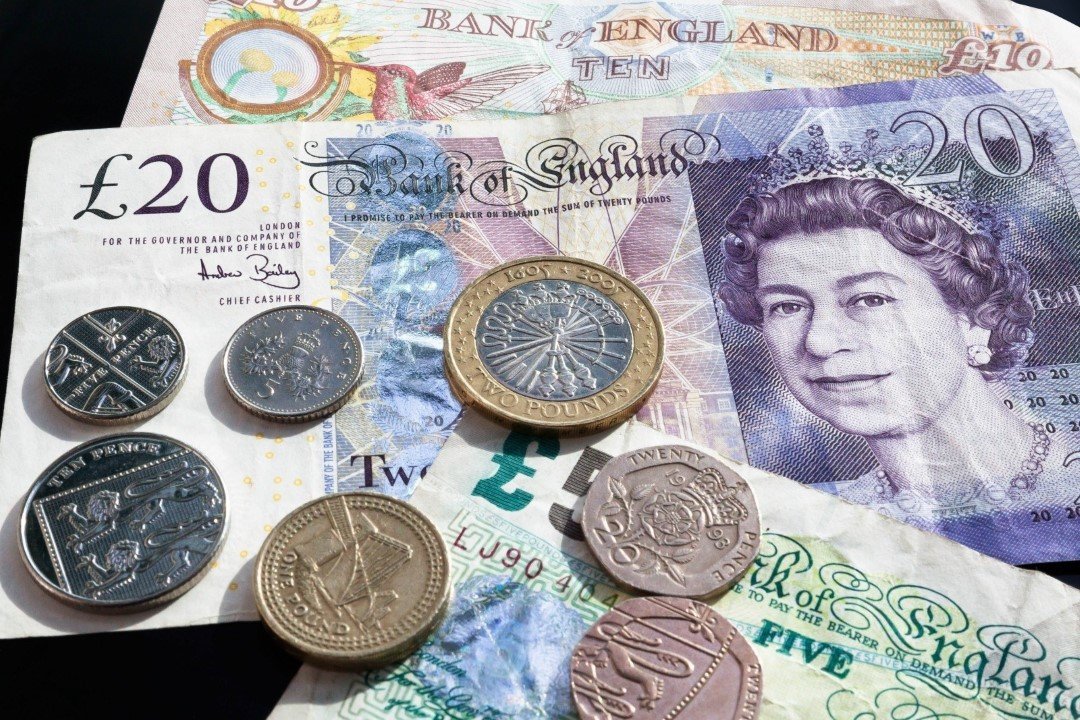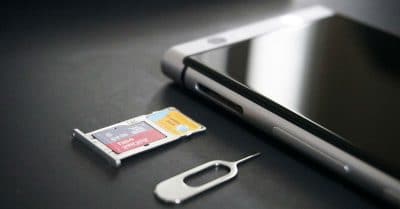Cashback Mobile Phone Deals Explained: Your Guide to Instant and Redemption Cashback Deals
Signing up for a mobile contract can represent a big investment, particularly if you’re getting a top end new mobile thrown in with the deal. So when you see an advertisement offering you “cashback” on your contract, it can be pretty tempting. Sure, you’ll be spending a fair amount of money, but you’re going to be getting money back, right? Well… maybe. Cashback deals can be a great way to save money, or they can amount to absolutely nothing. Confused? We’ve got all you need to know about cashback deals right here.
What is a Cashback Deal?
A cashback deal is pretty much exactly what it sounds like. You sign up for a mobile contract (probably, although not always, including a phone). Then the company involved offers to pay back some of your spendings in the future. This could be a month from now, or six months from now, it really depends on the deal. But the basic principle is you spend the money and at some point, the company will refund some of it back to you. There are two kinds of cashback deals available:
Automatic Cashback
This is where you don’t really have to do anything. You sign up for your contract, and after a set period of time, the company sends you a cheque or wires money back to your bank account. However, there are usually conditions attached. The two most common conditions for getting your cashback are:
- Waiting for a set period of time (usually a few months)
- Not missing any bill payments or making any payments late during that waiting period
Obviously, automatic cashback is a pretty simple process and other than waiting and paying your bills doesn’t require much from the customer himself.
Redemption Cashback
Redemption cashback is more complicated, and unfortunately for you, a lot more common. With redemption cashback, you’ll be required to do something before you can get your money back. Usually, but not always, this involves waiting a set period of time and then mailing in a claim. Again, usually, but not always, you’ll be required to attach copies of phone bills to validate this claim. And you won’t be able to miss payments or make late payments either or risk invalidating your claim.
This is going to require that you’re very organised and that you stay on top of the timeline (turning in that claim only during the period when you’re allowed to do so), and keeping copies of your phone bills around.
Wait, Is This a Scam?
In today’s world, it’s only natural that you’d see an advertisement offering you money back and think that it’s a scam. But the truth is that cashback deals generally aren’t a scam. That’s not to say that they’re completely trustworthy though. For a start, cashback deals tend only to be offered on expensive contracts, which may contain far more minutes/data than you actually need. You’re unlikely to see an offer on an average phone contract, only on big ones.
Other than that, automatic cash back deals tend to be exactly what they say they are, and you stand a good chance of getting your money as long as you don’t miss any bill payments. The more common redemption cashback is trickier. A lot of companies rely on you forgetting to claim, on you not providing the specific bills they ask for, or on complicated claim forms, so they don’t have to pay out. Getting your money back from a redemption scheme isn’t impossible, but it can get complicated.
The Pros and Cons of Cashback
There are both good and bad sides to cashback deals. The obvious advantage of these deals is that you could potentially save money. That’s pretty tempting, especially when you see a deal on a £50 a month contract that offers you back £30 a month, right?
The downside here is the chance of you actually getting your money. Those claims are complicated and break one condition and the whole thing is invalidated. There’s no real recourse if a company refuses to give you your money back because you didn’t fulfil your end of the deal. And there have been reports of companies saying that claims were lost in the post, despite the customer sending in all the relevant information on time. In fact, UK consumer watchdog Which? has recommended that cashback deals be banned. And telecommunications regulator OFCOM has reported that cashback deals are responsible for about 50% of complaints about mobile phone sellers.
You can add into this the fact that because cashback deals are usually found on big, pricey contracts, there’s also the chance that you’ll be spending more than you normally would. If you only need a medium-sized contract but get tempted into a far bigger and more expensive contract because it offers a cashback deal, you could end up spending a lot more money. Especially if that cashback deal is denied.
So, I Shouldn’t Get a Cashback Deal?
Not necessarily. If you get a good deal, you can end up saving money. But there are some things that you’ll need to be aware of in order to have the best chance of getting a good deal for you:
- Read ALL the terms and conditions of an offer before signing up. Note down what you will be required to do. Pay special attention to when a claim can be filed, how it can be filed, and what you are required to attach to a claim (including the number of bills, in which format, etc.) Also, be aware that some companies make you file multiple claims (perhaps even one a month) so watch out for that too.
- Ensure that the company you are going through has a good reputation. You can do this by reading consumer reviews. In general, big names are more reliable. Some mobile operators do offer cashback deals directly, we at TigerMobiles also offer some cashback deals, as do various other third-party sites. Check those reviews and see what kind of experience other consumers have had!
- Remember that if a deal sounds too good to be true, it probably is. Use your common sense here and steer clear of deals that promise too much, they’re probably not what they appear to be.
- Don’t be tempted into getting a bigger contract than you really need. Do the math. You may well be better off just paying full price for a smaller contract, particularly if your cashback claim gets denied.
- Always consider the fact that your claim may well be denied. Ensure that you are capable of paying the FULL PRICE for the contract you’re signing up for. Consider the cashback to be a potential bonus, but don’t depend on it.
Your Rights
We’ll be honest here, you don’t have a lot of rights when it comes to these kinds of deals. And protesting a denial of a claim can be tough (we’ll get to that later). But there are some things that a company is required to do when offering you a deal. In order to have the best chance of getting a good deal and getting your money back, you should ensure that the company you’re dealing with abides by the following rules:
- By law, the company is required to tell you via writing (email or letter) the following information: the name of the company that is giving you the deal, exactly what you will receive as part of the deal and when you will get it, and the full terms and conditions of the deal
- You must be given at least 60 days to apply for the deal, and you cannot be charged any money for applying
- You cannot be required to send originals of bills and must be allowed to send copies
- You cannot be automatically disqualified from a deal just because you’ve been refused a cashback deal before
- You cannot be denied cashback just because you have money owed on your account (though you can be denied if you fail to pay a bill)
These rules form part of the Consumer Protection from Unfair Trading Regulations 2008 act and are enforced by OFCOM and the law.
Increase Your Chance of Filing a Successful Cashback Claim
If you do decide to go with a cashback deal, then there are some things that you can do to increase your chances of filing a successful claim:
- Again, read all the terms and conditions of your contract carefully and be absolutely sure of what is required of you. If you can’t figure something out, then contact the company concerned and ask them specifically about what you should do. Try and get any answers in writing.
- Use the calendar app on your phone (or a regular calendar) to mark down the dates when you will need to fill out claims and send them in. This is especially important if you’re required to send multiple claims.
- Keep ALL your mobile bills. If possible keep electronic copies as well as paper copies.
- Prepare your claim well in advance. You may find that filling out that claim form takes a lot longer than you’d anticipated, and may require information that you need to get from other companies, such as your mobile provider. Don’t try to fill out a claim at the last minute.
- If you can, send your claim as registered post or receipt on delivery, that way you’ll be able to prove that a company has received your claim.
What Can I Do if My Cashback Claim is Rejected?
To be completely honest, you’re on very shaky ground if your claim gets denied, and there may not be much that you can do about it. Cashback deals aren’t as heavily regulated as many other kinds of special offers are. The first thing that you need to do is check that you did abide by the terms and conditions of the contract to the letter. If you didn’t, you’re probably going to find that you don’t have much recourse (and remember, those terms and conditions can be pretty tricky).
However, there are a few things that could help you out:
- Get Your Evidence: If you feel that you’ve been unfairly treated, the first thing you’ll need to do is gather all your evidence. This should include a copy of the original contract along with all the terms and conditions. You should also include any evidence you have that you have fulfilled the terms and conditions (mobile bills, postage receipts from filing claims). If you feel that the deal was advertised falsely, you should also try to get evidence of this (screenshots, flyers, whatever you can find).
- Company First: The first place you should go with all your evidence is the company itself. Contact the company and tell them your issue, providing them with copies of your evidence. You may find that the problem is resolved, or that you are told the exact reason why you were denied.
- The Ombudsman: If you got your deal from a mobile phone operator, you can take your complaints to either CISAS or Ombudsman Services: Communications. Again, you can ONLY do this if your deal came straight from a mobile operator.
- Legal Services: If you did not get your deal from a mobile operator, then there are still laws that may apply to help you (such as Trading Standards). However, you will probably need legal advice to take your case further. You can hire a solicitor, or try the Citizen’s Advice Bureau for further help. Do be aware that legal advice and launching a small claims court case will cost you money, and there’s no guarantee that you’re going to win your case!
Cashback Deals: The Bottom Line
A cashback deal can be a great way to save money, as long as you read your deal carefully and abide by what might be very complicated terms and conditions. For the most part, deals that you see nowadays are legitimate, since advertising is heavily regulated in the UK. However, that doesn’t mean that companies won’t make you jump through plenty of hoops to get your money back. If you’re organised and careful about what you sign up for though, you could find that you get a great deal with cashback!




